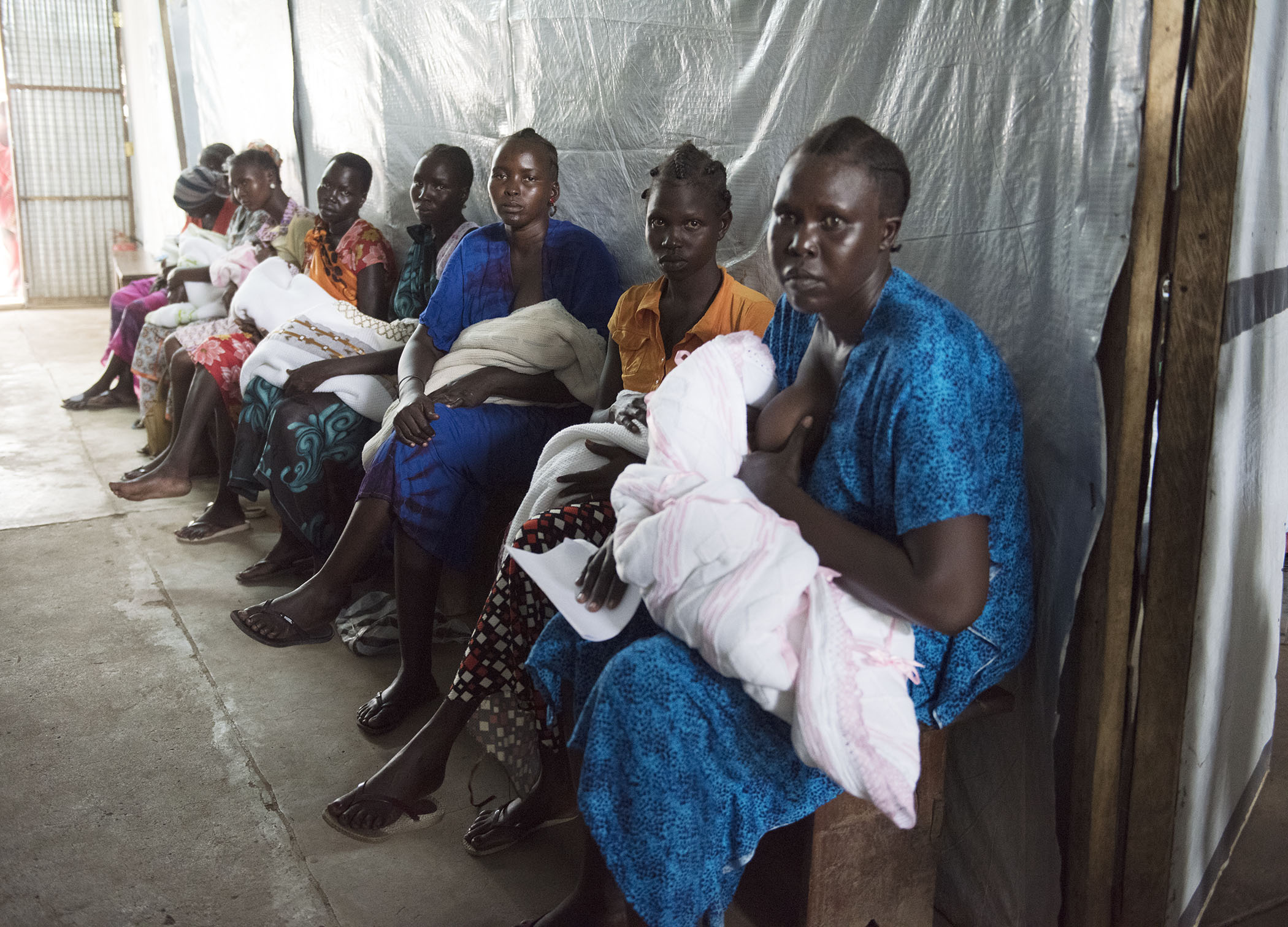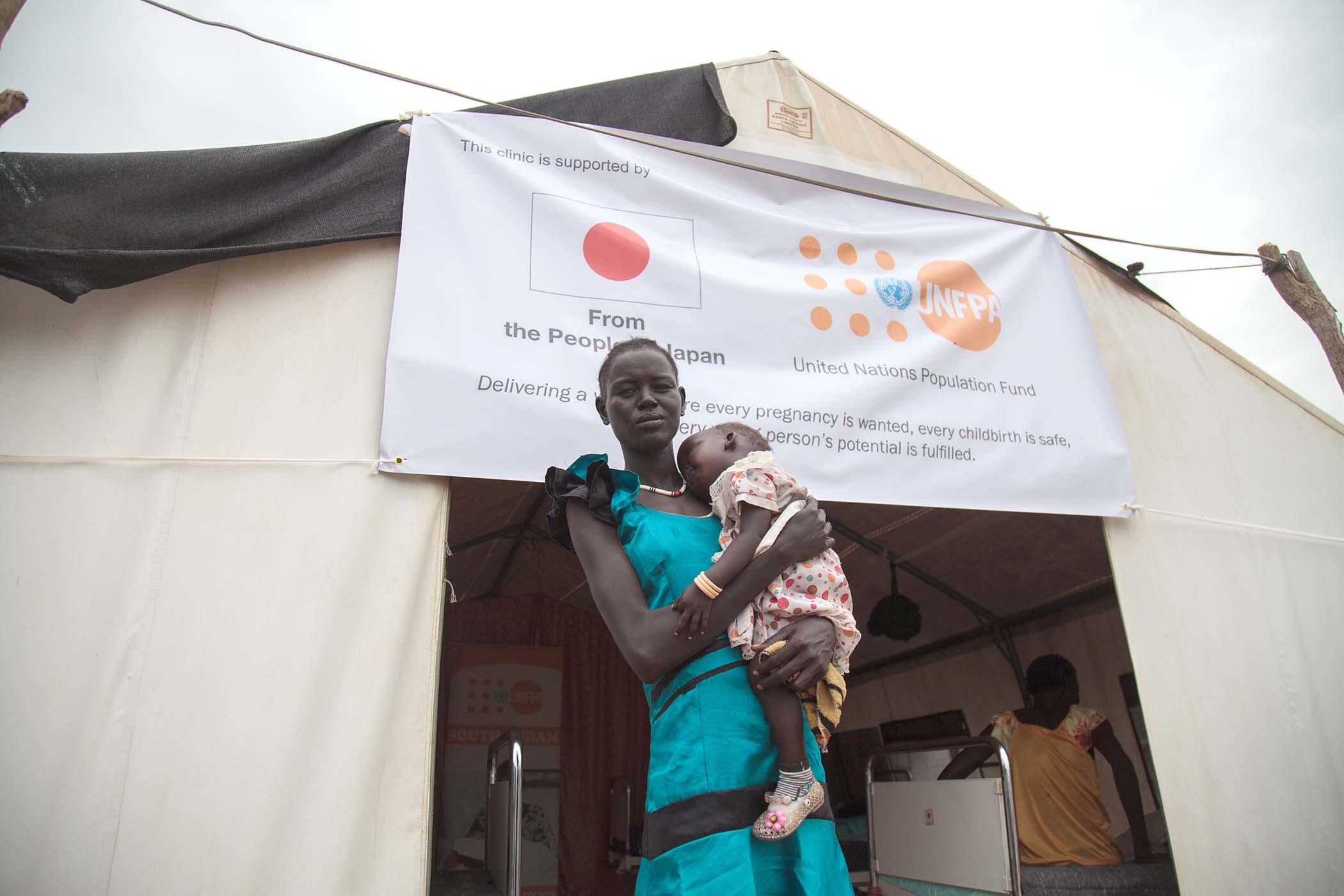The Japanese Government, in collaboration with the United Nations Population Fund, has reached almost a quarter of a million internally-displaced persons affected by the crisis in South Sudan with sexual and reproductive health services in the past four years.
The beneficiaries, mostly women, young girls and youth in general, are the most vulnerable population in the current crisis.
Maternal health is a key concern in the country, which has one of the world’s highest maternal deaths, and the disruption of health services due to the armed conflict has put the lives of crisis-affected population, especially women and girls, at greater risk.

Mothers and waiting for postnatal check up at the Juba POC clinic supported by the Government of Japan through UNFPA. ©UNFPA South Sudan/Charles Lomodong
In partnership with UNFPA, Japan’s support focused on increasing access to services for and information on reproductive health and gender-based violence in key locations in South Sudan. The services included antenatal care for pregnant women, skilled birth attendance, family planning, HIV testing, clinical management of rape, distribution of dignity kits, and rebuilding and strengthening of health facilities.
Mary Gatwiech, a 30-year-old mother at the Juba Protection of Civilians (POC) site, a UN camp for internally-displaced persons, could not express enough her gratitude for the reproductive services being provided at the clinic in the camp.
“We did not know where to go for services that we specifically need as women until this clinic started doing family planning and antenatal care,” Ms. Gatwiech says. “Women also used to deliver in their tents and some die during childbirth. But now, we can deliver in this clinic anytime and we are assured that a midwife or a doctor will be here to assist us.”
In 2017, the Japan-supported clinics in Juba and Mingkaman have proudly reported zero maternal deaths – a feat that is not yet achieved in the whole of South Sudan, which has a maternal mortality ratio of 789 deaths per 100,000 live births.
This was one of the great news that UNFPA Goodwill Ambassador Ashley Judd celebrated when she visited the Juba POC clinic in June 2018. While there are still mothers dying from complications of pregnancy and childbirth, there is also the positive news that zero maternal deaths can be achieved, if only access to reproductive health services, including skilled birth attendance are sustained.
During her visit to the clinic, Ms. Judd joined mothers during a family planning education session and shared personal experience to help the mothers better understand the benefits of planning a family.
“This is what I use,” says Ms. Judd as she points to an intra-uterine device (IUD) from a chart of family planning methods being presented by a health education facilitator.

UNFPA Goodwill Ambassador Ashley Judd talks about her experience using family planning as mothers from the Juba POC listen during a family planning education session. ©UNFPA South Sudan/Arlene Alano
“By using family planning, I am able to decide when I want and when I am ready to have a child,” she told the mothers. “It also allows me to do other things – like work – and be economically productive while I am not pregnant.”
The International Medical Corps (IMC), which manages the IDP camp clinics, says the support from Japan is pivotal in enabling access to life-saving health services. Since the interventions were introduced, the number of clients utilizing the services in the clinics has been increasing. This is especially notable in the uptake of antenatal care, family planning, HIV testing, and facility based deliveries.


